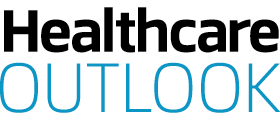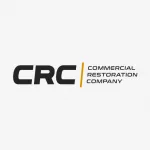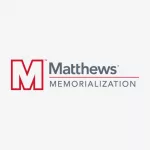As deathcare undergoes a technological transformation, Carriage Services co-Founder, CEO, and Chairman of the Board, Mel Payne gives us an insight into an industry where compassion is key.
DIRECTING CHANGE IN THE FUNERAL PROFESSION
The unavoidable business of death is one of society’s least discussed topics. Nevertheless, the deathcare industry has developed over time into one of the most successful markets.
At some point, everyone will rely on the services of a funeral home, but the emotional experience attached to it needs a compassionate and sensitive approach – an attribute which Carriage Services specializes in.
“How you take care of a family, how you make them feel, and how you help them celebrate a loved one has been, and will continue to be, the most important focus of our profession,” opens Mel Payne, co-Founder, CEO, and Chairman of the Board of Carriage Services.
Headquartered in Houston, Texas, the organization combines tradition with digitization as a result of the COVID-19 pandemic, which was a time for innovation across all sectors.
Historically speaking, the deathcare industry has been around for over a century, ever since soldiers’ bodies needed embalming in order to preserve them for the long and arduous journey home from the American Civil War.
The process started to gain traction after Abraham Lincoln’s funeral procession in 1865; the public were impressed when they viewed the well-preserved body, realizing the embalming process allowed more time for customs to enter the mourning period.
However, the idea of an actual ceremony using the services of a funeral home did not become widespread until the 20th century. This is when the industry experienced exponential growth between the years 1865 and 1920, with almost 25,000 funeral homes established in that time frame.
Up until then, funerals were organized by family members, friends, and neighbors, when tradition dictated that burials take place on family property. As communities became larger and more settled, cemeteries began to be utilized.
The oldest funeral home in the US dates back to 1759 in Williamsburg, Virginia, and was run by cabinet maker Anthony Hay, who made coffins as a sideline. Before funerals became an industry, which is now worth $20 billion annually, women prepared the deceased up until the mid-1800s.
However, it was Abraham Lincoln’s public funeral that prompted the population to crave the same treatment. Consequently, death as a service caught on, with many professions entering the industry and funeral homes eventually becoming the businesses and organizations we see today.

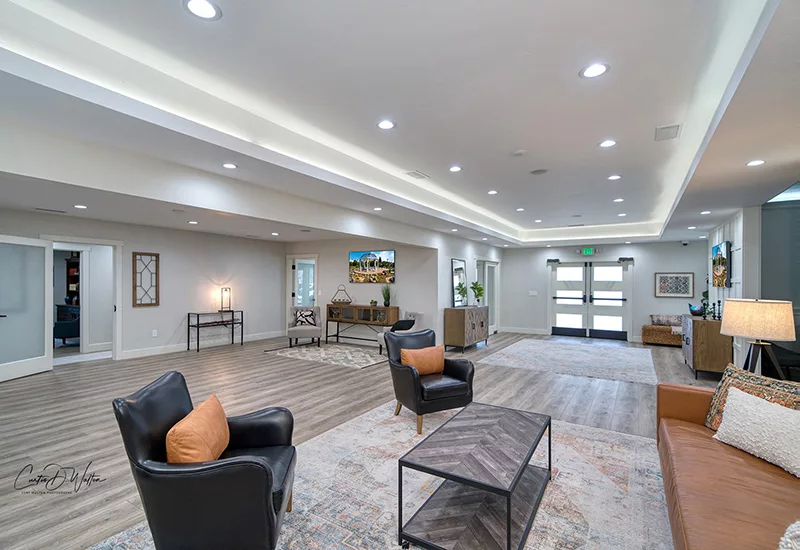
INNOVATION AND CELEBRATION
There is a rich history of funeral homes and traditions. Today, funeral directors do much of the same as they did 100 years ago, but advances in technology are beginning to change the profession, as Payne will testify.
It was Payne’s own family tragedy, combined with an entrepreneurial spirit, that inspired him to start a business in the funeral home and cemetery industry. In order to honor the memory of his nephew, Carriage Services was incepted in 1991.
“I experienced the incredible impact that the funeral profession could have on a family and an individual. Following my nephew’s service, I was so touched by the noble work of the team at the funeral home, that I was drawn to the profession,” he shares.
After serving in Vietnam, Payne’s career path led him into the finance sector, subsequently gaining a degree in chemical engineering and earning an MBA.
Carriage Services has always maintained its core principles and industry standards which have been around for decades – for example, service always comes first. In fact, the message is an identifiable fixture of the company.
Although technology is increasingly assisting the process, and making the arrangements more seamless for families today as opposed to 30+ years ago, the sensitive nature of the industry still requires a personal and human touch.
The tools that are now available can help focus on the celebration of life and achieve unique services tailored to the individual being commemorated. However, Carriage Services still values the compassionate attitude its employees bring to the business.
It is an ongoing balance between technology and tradition. As the COVID-19 pandemic was a catalyst for innovation, the industry is undergoing a huge transformation.
“Within our own company, we have grown to a size where we are able to offer more support than ever to the leaders of our business through the very same technology. From marketing help to service, and guest experience ideas, the resources that were unavailable when the company was founded combine to create a first-class and memorable service for our families today,” assures Payne.
As the company is deeply committed to delivering an unparalleled customer experience through creativity and innovation, it has designed a purpose-driven customer journey that involves digital transformation.
“The customer-centric approach is at the heart of Carriage Services, and we are building all our processes around it. We leverage digital transformation principles and apply them to the customer journey, and it consciously revolves around wowing our clients.”
Whether it is through online transactions, phone conversations, or face-to-face engagements, the goal is to exceed the expectations of the families at every touchpoint along their personalized journey.
“From our marketing efforts to the funeral service itself, we thoughtfully curate an elevated experience empowered by digital mediums. While we are currently in the process of implementing this new customer-centric approach, we estimate full adoption will be achieved by 2024,” reveals Payne.
“We are confident that this transformation will solidify our position and create a service excellence moat around each of our businesses.”
With technology on the rise, the funeral industry is likely to undergo many changes over the next few years. From digital death management, to recording memories, innovators are disrupting and transforming an industry which is so quietly fundamental to society, and whose traditions have remained unchanged for decades.
Those same traditions are set continue, albeit in a new and more technologically advanced way.
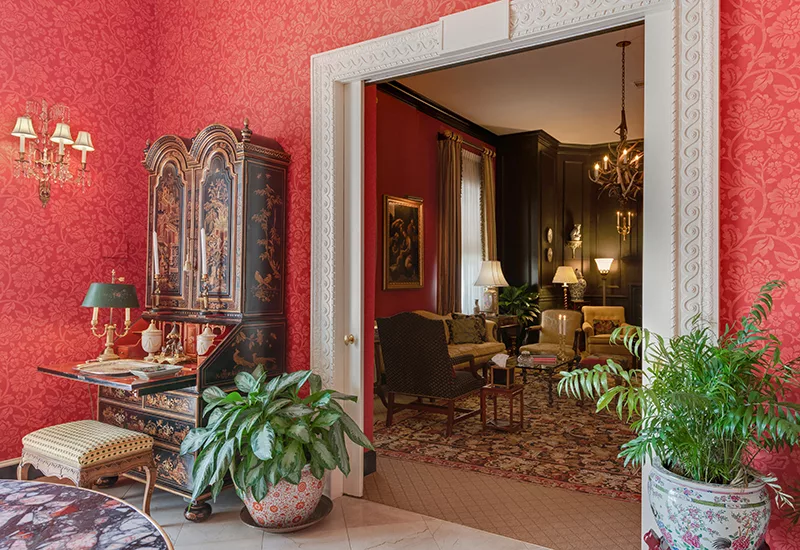
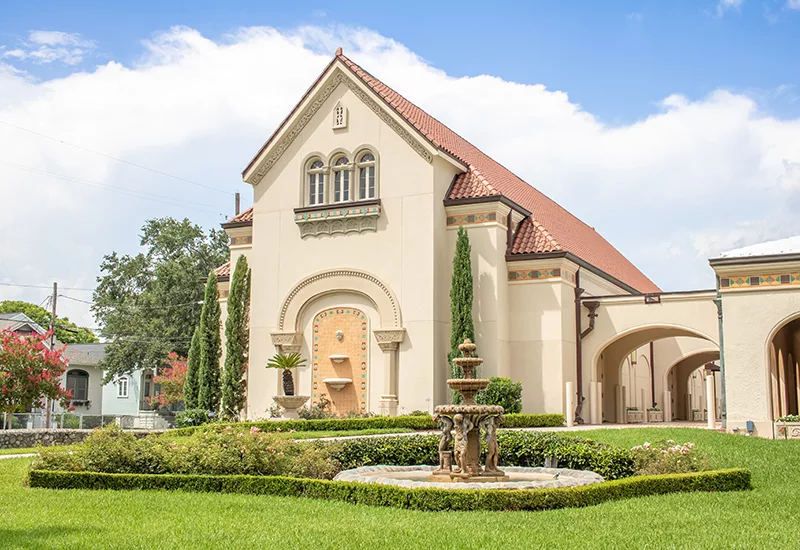
COMMITTED TO TRAINING
As death is a delicate subject, the deathcare industry needs a tactful type of employee, and staff and partners must be selected accordingly. Not only does the nature of the business require the correct attributes, but investment in training and development is also of the utmost importance.
Carriage Services takes employment and ongoing training seriously as they play a crucial role in delivering exceptional care to families during difficult times. Therefore, the company places a high value on staff and partners alike.
“We look for key attributes that align with our values and commitment to excellence. Our staff must have genuine compassion and empathy towards the families we serve. This includes being able to provide emotional support, understanding, and comfort during a difficult and sensitive time,” reveals Payne.
Alongside compassion and empathy, sit professionalism and integrity. Individuals must maintain confidentiality, always adhere to ethical standards, and conduct themselves in a professional and respectful manner – in all interactions.
“Effective communication is critical; our staff and partners must possess excellent verbal and written communication skills to convey information effectively, including listening to needs and conveying instructions clearly,” he adds.
There is a code of conduct when dealing with heightened emotions and expectations. The funeral home has an ethical obligation to fulfill and standards to uphold. Moreover, a certain etiquette, professionalism, and courtesy are a given, as well as other skill sets.
Attention to detail and strong organizational skills are essential in ensuring that all funeral arrangements and services are carried out precisely and carefully.
“From coordinating logistics to managing paperwork, our staff and partners must have excellent organizational skills to ensure smooth operations,” Payne notes.
The funeral industry is a dynamic field, and it needs people who can adapt and thrive in changing circumstances. This includes flexibility with work schedules, responding to last minute changes, and being able to remain composed in unexpected situations.
As with most industries, being a team player is vital as collaborative work provides the best outcomes for the recently bereaved. As Payne informs us, Carriage Services seeks people who “support and assist their colleagues and contribute positively to the overall work environment.”
Moreover, funeral services are continuing to evolve since the COVID-19 pandemic. Therefore, a growth mindset and a commitment to ongoing learning and professional development are key attributes.
Keeping updated on industry trends, attending training programs, and seeking opportunities for self-improvement are all activities that staff and partners should be prepared to do.
“By seeking staff and partners who possess these attributes, we ensure that our team is well-equipped enough to provide exceptional service to our families with compassion, professionalism, and excellence.
“The collective effort of our staff and partners makes our portfolio of businesses truly unique, positioned for high performance, and in full alignment with our vision and mission of being the best,” he affirms.
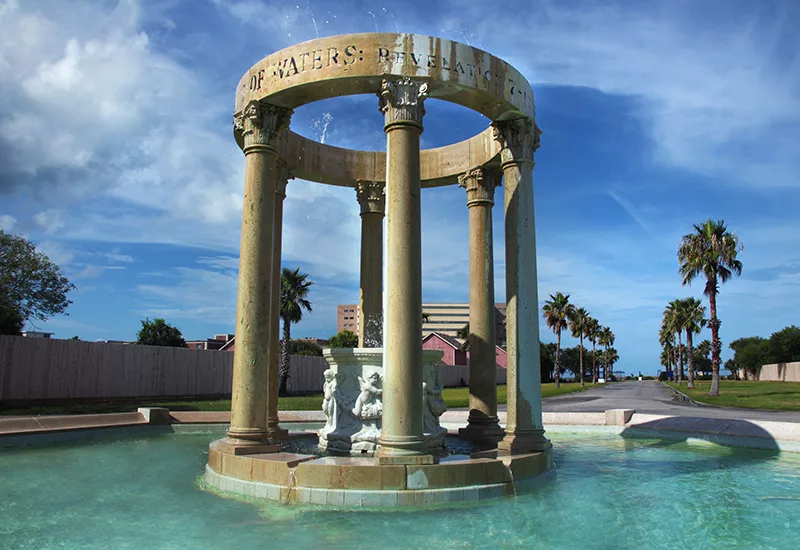
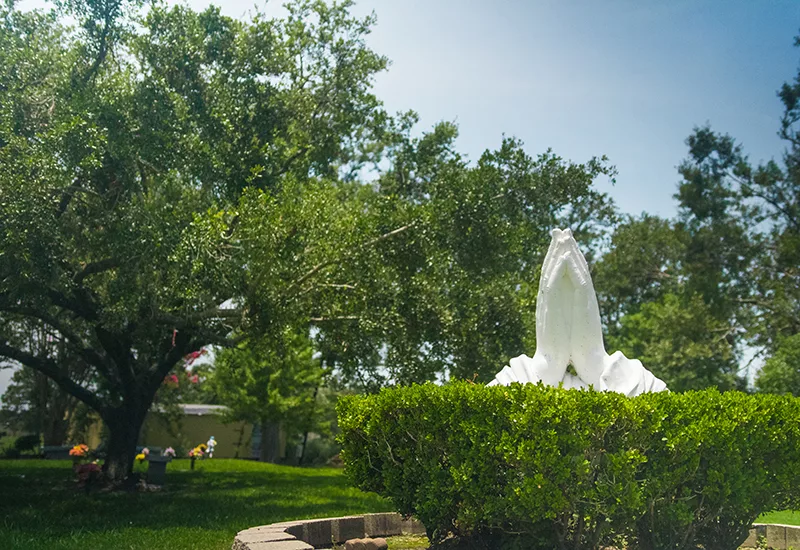
SETTING THE MODEL STANDARD
Carriage Services owns and operates 205 funeral homes and cemeteries in 26 states, employing over 2,500 dedicated staff. Although the company is growing organically with the death rate, the standard of care and dedicated nature of the staff remains the same.
“I have always defined the organization as a high-performance culture company that just happens to be in the deathcare space. We have a Darwinian culture where only the best of the best succeeds,” Payne proudly states.
“I always believed, and have since proved, that when you find the “right who” and place them in the right seat, you should turn them loose through empowerment. The results are a testament to the high performing power of the Carriage Services operating model.”
The organization differentiates itself from other companies in the sector by offering opportunities and experiences to partners, staff and clientele, therefore putting people at the core of its values.
“We believe that our staff, partners and clientele are the fuel that powers our high-performance engine, and we prioritize their needs and experiences above all else.
“Our unique approach is reflected in our flywheel component of “first who, then what”, which emphasizes the importance of our people in driving our success,” he elaborates.
The company’s commitment to people is reinforced by its decentralized model, where trust and empowerment are fundamental principles.
“We believe in fostering a culture of innovation and creativity, which sets us apart from other companies in the deathcare industry.
“Our Standards Operating Model and Strategic Acquisition Framework have been thoughtfully and strategically designed to support our high-performance culture company, positioning us as a unique and differentiating force in the industry,” Payne says enthusiastically.
The decentralized approach that the company takes is instrumental in enabling this high performance. The model is built on finding the “right who” to lead a business and then empowering that leader to make the best decisions, including selecting most vendors, for their business.
“Due to our size and scale, we are able to present cost-effective options for our managing partners as it relates to certain products and services.”
This people-centric approach, combined with innovative ideas and creative concepts, sets Carriage Services apart from other companies in the sector. Its commitment to staff, partners and clientele makes it unique, and enables it to deliver exceptional opportunities and experiences that surpass industry standards.

“We believe in fostering a culture of innovation and creativity, which sets us apart from other companies in the deathcare industry”
Mel Payne, co-Founder, CEO, and Chairman of the Board, Carriage Services
FUTURE FUNERAL PROCESSES
Digital integration, automation, and seamless processes are at the forefront of transforming how Carriage Services assists grieving families with finalizing arrangements, ensuring services are conducted in an exceptional manner.
As Carriage Services is committed to excellence and delivering a personalized experience to the clientele it serves, it is working hard on the development of a cutting-edge system called Trinity.
“Trinity is our new enterprise resource planning (ERP) system currently in development and it will replace our existing contract platform.
“Powered by a first-in-class family portal and front-facing engagement tool, Trinity will enable our funeral directors to deliver an elevated service experience like never before,” Payne elaborates.
Trinity will streamline its processes, enhance communication, and provide an unparalleled service to the families who put their trust in Carriage Services at their time of need.
“The transformation is a testament to our dedication to innovation and continuous improvement.
“We are excited about the positive impact Trinity will have on our ability to serve families with the utmost care and professionalism. We look forward to sharing more about this exciting development in the near future,” he explains.
ERP is the latest innovation in funeral planning and the software is designed for organizations to manage day-to-day planning, while driving agility and success.
Embarking on advances in technology are only part of the company’s plans for this year, with other key priorities including more acquisitions. Two funeral homes are already in the Carriage Services fold, with another one in the pipeline.
As a consolidation company, Carriage Services prides itself on seeking strategic partnerships, and is committed to maintaining a disciplined approach to acquisitions. It ensures each partnership aligns with its goals and adds value to the organization.
“Our acquisition framework is highly selective, as we diligently identify premium businesses in growing strategic markets that fit our Carriage operating model,” Payne informs us.
With a vision for excellence, the framework allows careful evaluation of each acquisition opportunity based on its potential to enhance the company portfolio and drive positive financial performance.
The latest acquisitions of Greenlawn Funeral Homes, Cemeteries and Cremations, and Wood Family Funeral Service earlier this year, are testament to the selective approach of partnering with the remaining larger businesses.
“Our future is simply not in growth for the sake of it but rather on being the best capital allocators and value creators for our stakeholders. We strive to continually elevate our performance and deliver exceptional results,” concludes Payne.
Whatever is next for Carriage Services, it is guaranteed that care, compassion, and clientele will remain at the fore.
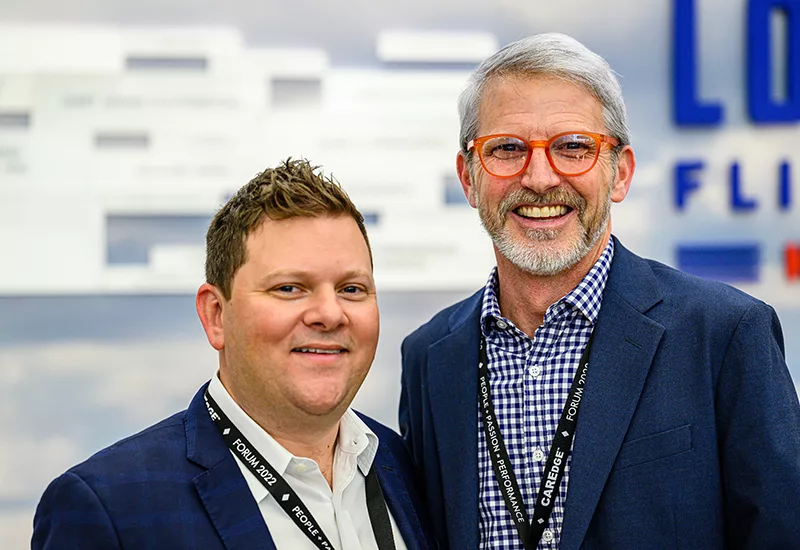
CARRIAGE SERVICES PARTNERS


